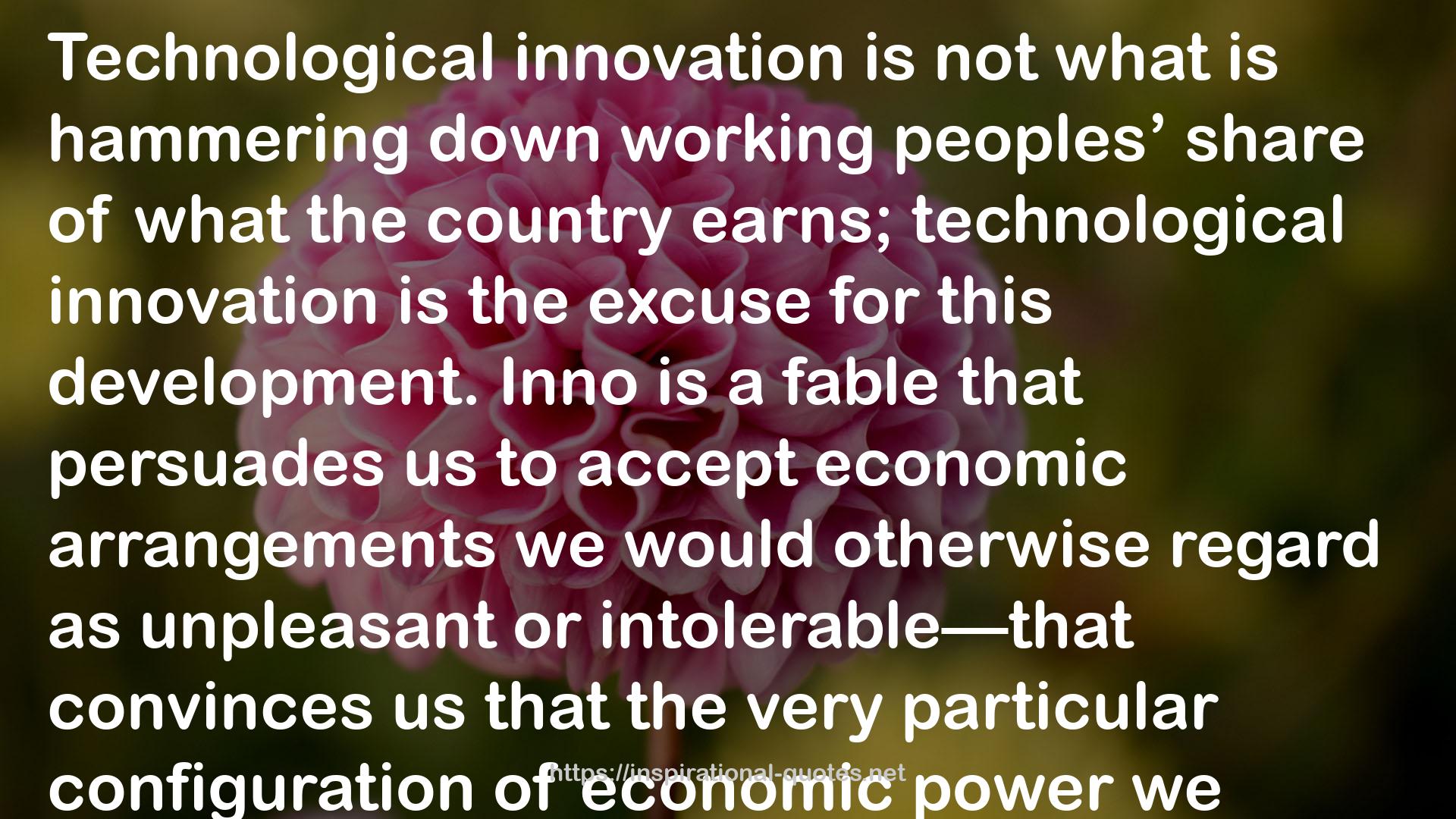" Technological innovation is not what is hammering down working peoples’ share of what the country earns; technological innovation is the excuse for this development. Inno is a fable that persuades us to accept economic arrangements we would otherwise regard as unpleasant or intolerable—that convinces us that the very particular configuration of economic power we inhabit is in fact a neutral matter of science, of nature, of the way God wants things to be. Every time we describe the economy as an “ecosystem” we accept this point of view. Every time we write off the situation of workers as a matter of unalterable “reality” we resign ourselves to it.
In truth, we have been hearing some version of all this inno-talk since the 1970s—a snarling Republican iteration, which demands our submission before the almighty entrepreneur; and a friendly and caring Democratic one, which promises to patch us up with job training and student loans. What each version brushes under the rug is that it doesn’t have to be this way. Economies aren’t ecosystems. They aren’t naturally occurring phenomena to which we must learn to acclimate. Their rules are made by humans. They are, in a word, political. In a democracy we can set the economic table however we choose.
“Amazon is not happening to bookselling,” Jeff Bezos of Amazon likes to say. “The future is happening to bookselling.” And what the future wants just happens to be exactly what Amazon wants. What an amazing coincidence. "
― Thomas Frank , Listen, Liberal: Or, What Ever Happened to the Party of the People
